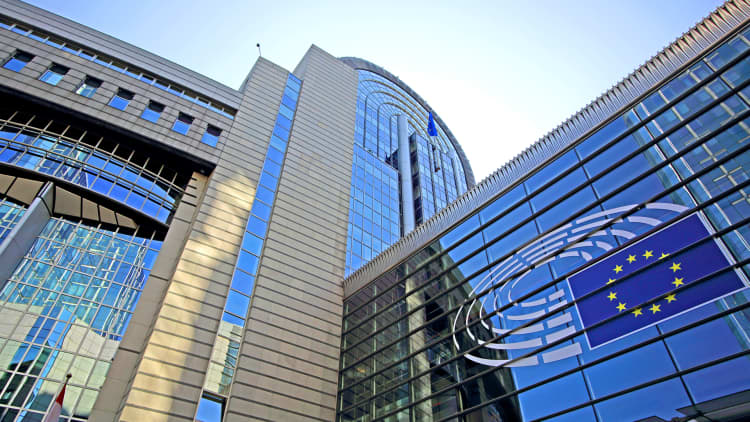Facebook, Google and Twitter ramped up their efforts to fight fake news ahead of elections last month but "more needs to be done" in the face of ongoing threats from Russia, EU officials said Friday.
In a joint statement and report, the EU reported evidence of "coordinated inauthentic behavior" such as bots and fake accounts trying spread divisive content on online platforms ahead of the European Parliament elections at the end of May. The EU added it found "continued and sustained disinformation activity" by Russian sources aiming to influence voter preferences and suppress turnout.
"The tactics used by internal and external actors, in particular linked to Russian sources, are evolving as quickly as the measures adopted by states and online platforms," the statement said.
The EU report found it was too early to identify whether there was a "distinct cross-border disinformation campaign" targeting the European elections.

Social media platforms like Facebook, YouTube and Twitter have faced backlash from lawmakers around the world for failing to contain the spread of fake information in election campaigns. The EU said the companies have made progress in some of their efforts to fight disinformation, like hiring fact-checking teams and tightening restrictions around political advertising. But European officials added they expect the firms "to maintain momentum and to step up their efforts."
The EU said that in the days preceding elections, more than 600 groups and Facebook pages across Germany, France, Italy, the U.K., Poland and Spain were reported to have spread disinformation and hate speech. It said these pages generated 763 million user views.
Facebook has been stepping up its fight against fake accounts in recent months. In May, the company reported it removed 2.2 billion fake accounts in the first quarter of 2019, nearly double the amount from the prior quarter. Facebook also toughened its requirements around political advertising on the platform ahead of EU elections.
"Although Facebook extended its transparency to issue-based ads and Google and Twitter did not, questions remain about the effectiveness of the transparency measures taken by all signatories," the EU report said. "Furthermore, the platforms did not make sufficient progress in increasing the transparency of websites hosting ads, partly due to the lack of engagement from the advertising industry."
Facebook, Google and Twitter agreed to an EU "Code of Practice on Disinformation" in 2018, making commitments to submit monthly reports on their efforts to remove fake news ahead of the election.
"People want accurate information online and the work undertaken under the Code shows how Governments, tech companies and trade bodies can work together to tackle online misinformation. But the fight against false news will never be over. That is why we are making significant investments to remove fake accounts and clickbait and to promote high-quality journalism and news literacy," a Facebook spokesperson said in a statement Friday.
Meanwhile, a spokesperson from Twitter told CNBC in a statement that it is "deeply committed to protecting and supporting the public conversation. During the EU Elections, Twitter took proactive steps to encourage healthy democratic debate and ensure EU citizens could access credible, quality information on the service."
It further added: "We established a high-level cross-functional elections team, introduced a political campaign ads policy, and launched a new tool which enables users to report deliberately misleading election-related content. As with every election around the world, we'll continue to enforce our policies in line with our singular priority: to improve the health of the public conversation."
The European parliamentary election is the second-largest democratic election in the world, following India. The EU reported 51% of voters turned out for elections this year, the highest level in two decades. Top EU jobs – including that of the head of the European Union – are still up for grabs with a decision expected on June 18.
Google did not immediately respond to CNBC's requests for comment.


